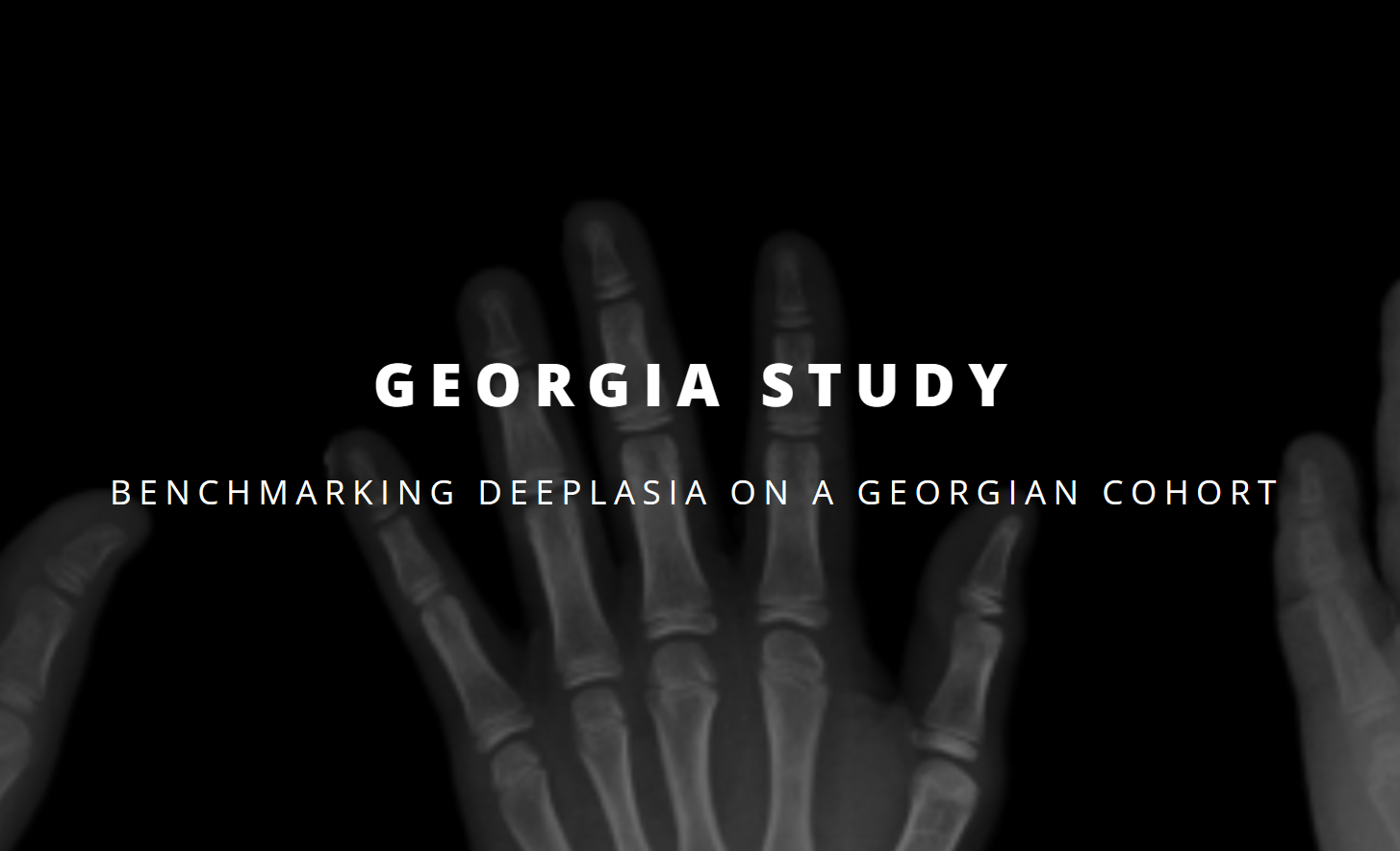Tbilisi State Medical University Department of Molecular and Medical Genetics has been collaborating with the Institute for Genomic Statistics and Bioinformatics of the University of Bonn for many years. The collaboration includes such international projects as Face2Gene and GestaltM. Through artificial intelligence, the facial photographs and phenotypic characteristics of patients with rare genetic diseases are analyzed and linked to various syndromes for diagnostic purposes. Both programs are free and available to professionals working in the healthcare field.
Currently, two new joint projects, Deeplasia and Bone2Gene, are underway.
The project Deeplasia involves the analysis of hand X-ray images using artificial intelligence to determine bone age. The program is valid for both normal patients and those with skeletal dysplasia, determining bone age with high accuracy. The Bone2Gene project involves the use of a unique artificial intelligence visualization pattern to analyze hand X-ray images, linking them to various syndromes and assisting clinicians in diagnosis. It will help reduce the difficulties faced by patients with rare skeletal diseases and their families. Currently, the database includes approximately 2,500 hand X-ray images from over 1,000 individuals with 30 different syndromes. The number is continually growing.
Professor Tinatin Tkemaladze initiated sharing more than 800 hand X-ray images from the Givi Zhvania Pediatric Academic Clinic and the M. Iashvili Children's Central Hospital with the University of Bonn. The initiative significantly improved the performance of artificial intelligence in determining bone age and diagnosing various rare diseases. Simultaneously, a study was conducted and seven Georgian doctors individually evaluated 400 hand X-ray images to determine bone age. The doctors' data were compared to the performance of artificial intelligence. The outcomes of the study will be published in a joint publication in a high-impact journal (see the research details).
Currently, alongside Georgia, Bone2Gene collaborators include various university clinics and medical centers from Germany, Italy, Slovenia, Czech Republic, South Africa, the United States, and Australia.
The projects Deeplasia and Bone2Gene are supported by international organizations - CrescNet, ERN-ITHACA, and GestaltMatcher.



